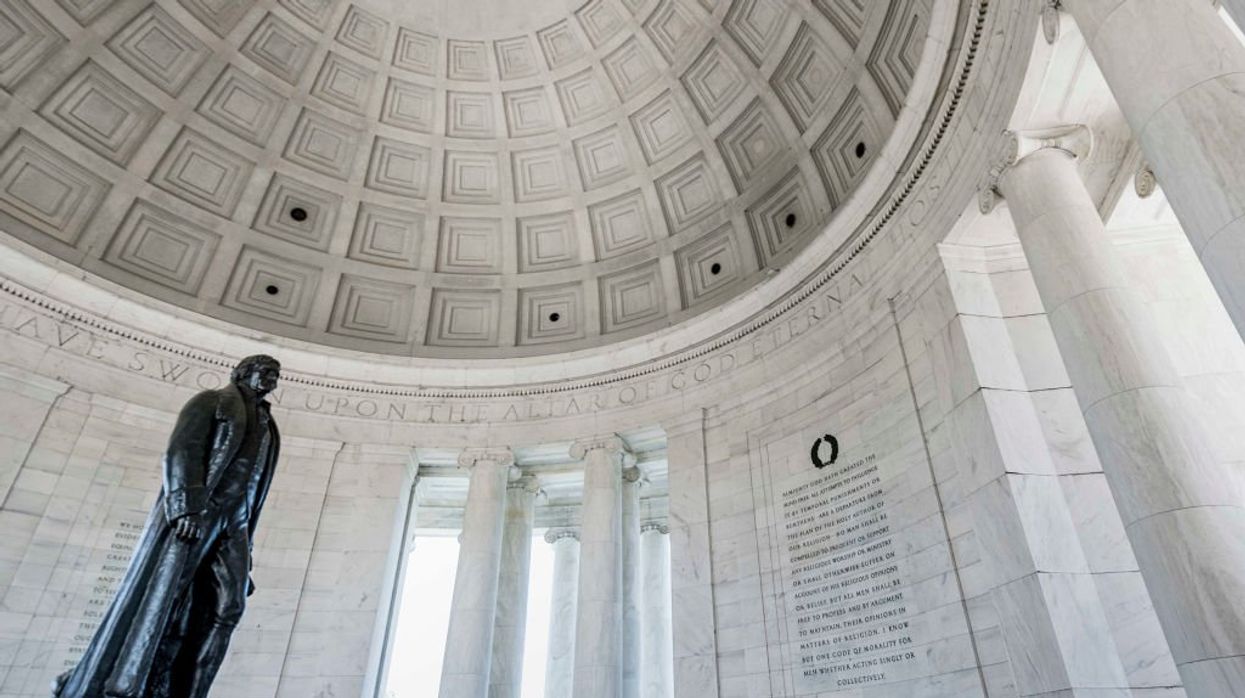It is common knowledge at this point that Washington D.C. is not the most moral place on earth, and on radio this morning Glenn was joined by Peter Schweizer, author of Extortion: How Politicians Extract Your Money, Buy Votes, and Line Their Own Pockets, to talk more about the corruption in our government.
“Everybody knows, no matter what side you are on, that Washington is a very, very corrupt place. It is very bad,” Glenn said on radio this morning. “A guy good friend of the show has gone in, and he has tracked this, and knows exactly what's going on. The name of the book is Extortion: How Politicians Extract Your Money, Buy Votes, and Line Their Own Pockets.”
Glenn and Peter first talked about a common misconception in Washington involving the exchange of money. While it is easy to look at special interest groups and say they are bribing politicians, in reality, the situation is actually the other way around. Peter explained “protection money” is often given to various politicians by corporations and businesses because they fear what will happen if they don’t.
“I'll give you a couple of examples in the book. These were with ex-corporate executives, not current ones because they won't talk about it. But the president of Shell Oil told me how he sat before a Congressional committee in 2009 with Maxine Waters and people from both political parties, who were lambasting Shell Oil and other companies because gasoline prices were high,” Peter explained. “Set aside for a second whether you think that that's true or not. But the fact is, after they grilled them publicly and Maxine Waters threatens to nationalize Shell Oil – after the meeting, what happened? Those same congressmen came up and said, ‘You know, if you were to hold a fundraiser for me or to make a donation, I might understand your issues better.’”
Another example Peter uncovered involved Wall Street in the aftermath of the 2008 economic collapse.
“I'm no defender of Wall Street, believe me, I've written a lot of critical things. But they go and get lambasted [on Capitol Hill],” Peter said. “And after the meeting, back in the cloak room or committee meeting, literally members of the Senate or Congress pull out Blackberries or iPhones and say, ‘Okay, when are you going to do a fundraiser for me?’ They don't have to say, ‘Do this or else.’ Everybody knows how the game is played. That's why you see a lot of these companies, Glenn – they give to candidates on both sides equally.”
Glenn questioned whether enough people actually care about the corruption to actually try to change anything, but Peter was confident the American people are listening and are fed up.
“Everybody knows this… You are actually backing it up with the facts, but you are not telling me anything surprising. Everybody knows it,” Glenn said. “They will have control over absolutely everything… I mean why does nobody care?”
“I think people care. I think certainly your audience cares and very much are engaged,” Peter said. “I think there are a lot of other Americans, not that they don't care, I think that they are so angry, they feel like nothing they can do can make a difference.”
If you are in the group Peter describes as “angry,” he offered a few ideas for ways to change the status-quo.
“But I think there are things that we can do,” Peter said. “Couple of examples: One, general elections. Most members of the Senate and Congress are in relatively safe seats, except for in primaries. So primary elections, get involved, get engaged… They know if they can get out of the primary, the vast majority of their seats are safe. You need to have people engaged, willing to run, and go and actually vote in a primary. That's the first thing I would say.”
“The second thing is we can push certain reforms. See, we've gone through the whole reform process of money and politics completely wrong. The assumption has been politicians are like Jimmy Stewart in Mr. Smith Goes to Washington – these ‘aw, shucks’ good guys and the outsiders are going to corrupt them. The problem is not protecting the politician. The problem is the politician,” Peter continued. “We need to have laws and reforms focused on restricting the behavior of the politicians, not the average American. So what I propose we do, Glenn, and it's not going to solve everything, we do what's done in Texas, Florida, what's done in Washington state. All of those states have a simple law as it relates to state legislators. When the legislature is in session, legislators cannot receive or solicit campaign contributions, period. End of discussion.”
Peter explained that if this same strategy was applied to Washington D.C., politicians would be forced to be extremely efficient in how they spend their time and money, and it would eliminate the “extortionability” factor, where corporations or industries can swoop in right before a bill is passed and say, “Show us some love.”
“That’s not going to solve everything,” Peter admitted. “But that's a quick fix.”
Watch the entire interview below:

 John Greim / Contributor | Getty Images
John Greim / Contributor | Getty Images
 Kean Collection / Staff | Getty Images
Kean Collection / Staff | Getty Images